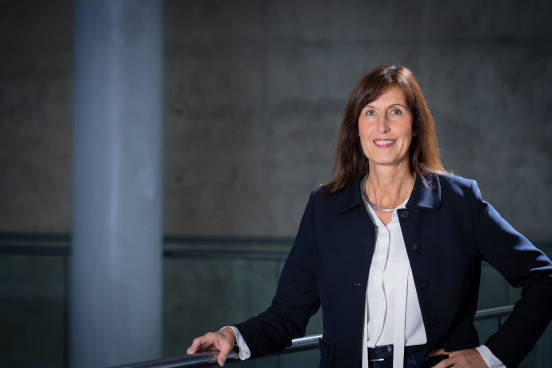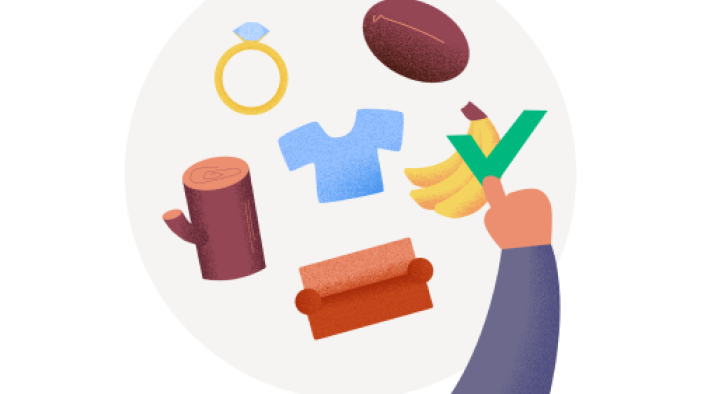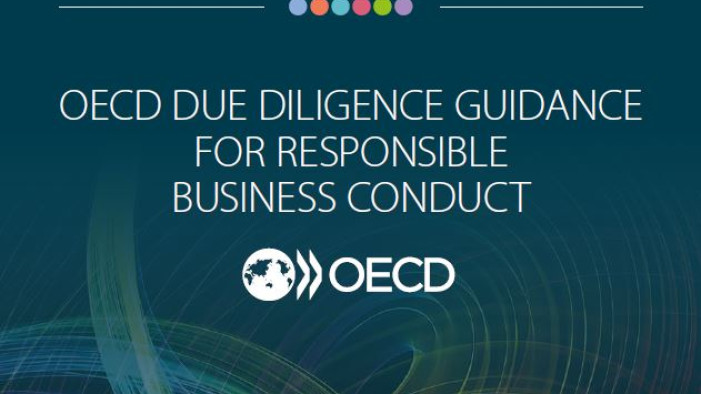INTERVIEW WITH CLAUDIA BRASSE - WILO SE

Wilo SE, headquartered in Dortmund, Germany, is a global technology group and one of the leading suppliers of pumps and pump systems for building services, water management and industry. With over 8,200 employees, the company is directly affected by the German The Act on Corporate Due Diligence Obligations in Supply Chains (Lieferkettensorgfaltspflichtengesetz, LkSG), which has been in force since 2023. The law requires companies to conduct appropriate human rights and certain environmental due diligence in their supply chains.
Due to the processing of a large number of different raw materials, the supply chains of the engineering industry are globally interconnected and complex. As a result, value creation also takes place in countries with inadequate social and environmental standards. Claudia Brasse, Group Director Sustainability & HSE at Wilo SE, describes how the company deals with these challenges and what measures it takes to avoid risks for people and the environment in its supply chains.
UPJ: Society is becoming increasingly aware of human rights in supply chains. How important is sustainable supply chain management for Wilo SE?
Claudia Brasse: As a multinational technology company, sustainable supplier management is a key success factor for us. Accordingly, it is anchored as a strategic goal in our sustainability strategy. Many years ago, we established processes to implement sustainability in our supply chain. For example, the Code of Conduct for Suppliers has been part of the onboarding process for more than ten years. With this code, we agree on compliance with basic human rights principles and environmental standards with our suppliers. This is complemented by a systematic risk management, supplier self-assessment and supplier audits.
UPJ: Can you give us examples of specific challenges and concrete actions Wilo is taking to improve the lives of people along its supply chain?
Brasse: A major challenge is the great diversity in the supplier network. Potential risks often cannot be narrowed down to two or three obvious commodity groups, topics or countries. We therefore prioritise and initially focus on the suppliers with the highest turnover and the greatest risk potentials. Subsequently, we become increasingly detailed and specific. For the past two years, we have been conducting compliance or human rights audits of suppliers where we have identified potential risks. Our experience with these audits has been very good and we have received positive feedback from the auditees. By consistently following up on measures, we have already been able to create numerous improvements for employees in the supply chains. These range from personal protective equipment and medical check-ups to improved work processes and insurance benefits.
UPJ: The analysis of (potential) risks thus plays an important role in implementing concrete measures in the supply chain. What is the importance of indices and information tools such as the CSR Risk Check to identify potential risks?
Brasse: Indices and tools are an important support in identifying the general risk priorities in the supply chain: which human rights and environmental risks are particularly high in which countries and for which product groups? The results are then of course very general and must therefore be linked to the existing information on the respective supplier portfolio. Engineering companies usually have a professional supplier management system. In any case, the information from the corresponding onboarding and development processes should be used to narrow down the risk potential accordingly.
UPJ: The aim of the LkSG is to improve human rights in global supply chains. What opportunities and potential do you see for the engineering industry in the responsible design of supply chains? And what do you think about cooperation and the possibilities of industry initiatives?
Brasse: We worked intensively in the working group "Business and Human Rights" of the German Mechanical Engineering Industry Association (VDMA) and found the cooperation very helpful. The moderation was always very structured and focused on solutions. This made the exchange with the other companies open and results-oriented. We were able to take away a lot of practical know-how and tools, especially at the beginning of the process. We would like to take this opportunity to thank the VDMA once again!
We consider the risk of serious human rights violations or environmental offences among our direct suppliers to be rather low. This is shown by the experiences from the compliance audits carried out as well as the evaluations of the risk reports. However, there is potential for improvement in the area of social and environmental standards, which we identify and implement. This presents two main opportunities: firstly, it leads to an intensification of cooperation with suppliers, which will have a positive impact on sustainable supply chain management. On the other hand, it further raises our awareness of the relevance of human rights and our responsibility to uphold and promote them.
UPJ: Wilo is directly affected by the LkSG. What requirements has the law placed on Wilo?
Brasse: During implementation, we closely followed the formulations of the LkSG. It was helpful that we had already established numerous processes and instruments on which we could build. We essentially added an even stronger focus on the topic of human rights as well as corresponding audits and training. Our goal was and is to create transparency in our supplier network and to intensify cooperation. This is becoming increasingly important if we want to take ESG aspects more into account. However, we are not currently aiming to trace the supply chain back to its origin.
More articles

Webinar recording: Using the CSR Risk Check in the Context of European HREDD Regulation
We recently hosted a webinar to take a deep dive into the CSR Risk Check. During this webinar, we discussed the new features of the CSR Risk Check and how the tool can help you prepare for legislation such as CSDDD. Please find the recording below in case you missed it!
 Deutsch
Deutsch

